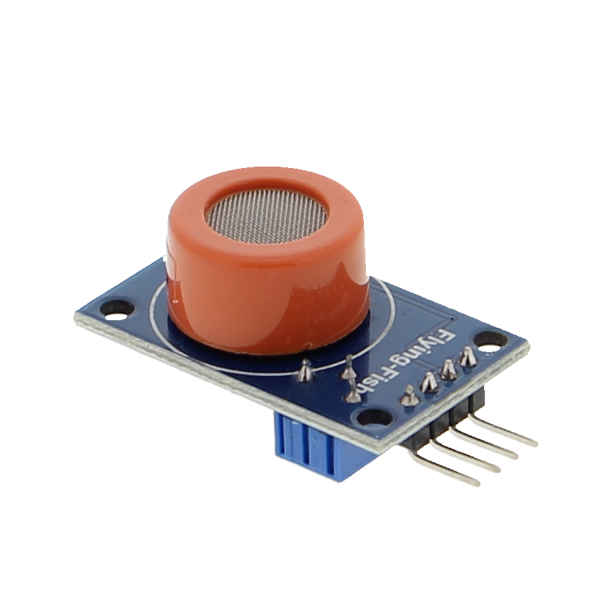The ESP32-CAM is a low-cost development board based on the ESP32-S module, which includes Wi-Fi + Bluetooth and an integrated OV2640 camera module. It’s widely used for IoT, surveillance, image recognition, and AI projects.
Key Features
Microcontroller: ESP32-S (dual-core, 32-bit, up to 240MHz)
Wi-Fi: 802.11 b/g/n
Bluetooth: BLE + Classic
Flash Memory: 4MB
SRAM: 520KB (plus external PSRAM up to 4MB)
Camera: OV2640 (2MP, 1600×1200 resolution)
MicroSD Slot: Supports up to 4GB (for image/video storage)
GPIO Pins: Limited (used mostly for camera and microSD)
UART Interface: For programming and debugging (requires external FTDI programmer)
Operating Voltage: 5V (via 5V pin or MicroUSB)
Consumption: ~160mA (active)
Pinout Overview
Key pins:
3.3V, 5V, GND: Power pins
U0R, U0T: UART for programming
IO0: Boot mode (must be LOW for flashing)
Other GPIOs: Used for camera & MicroSD (some available for external sensors)
Programming ESP32-CAM
No onboard USB interface → requires an FTDI or CP2102 USB-to-Serial adapter
Connections for uploading code:
U0R → TX of FTDI
U0T → RX of FTDI
GND → GND
5V → 5V
IO0 → GND (only for flashing mode)
Baud rate: 115200
Use Arduino IDE with ESP32 board support
Applications
Wireless Surveillance Camera
Face Recognition / Face Detection
Home Automation with Video
Smart Doorbell
IoT Security System
License Plate Recognition
Pet/Plant Monitoring
Sample Code: Camera Web Server
#include "esp_camera.h"
#include <WiFi.h>
// Replace with your network credentials
const char* ssid = "YOUR_SSID";
const char* password = "YOUR_PASSWORD";
// Camera configuration for ESP32-CAM (OV2640)
#define PWDN_GPIO_NUM -1
#define RESET_GPIO_NUM -1
#define XCLK_GPIO_NUM 0
#define SIOD_GPIO_NUM 26
#define SIOC_GPIO_NUM 27
#define Y9_GPIO_NUM 35
#define Y8_GPIO_NUM 34
#define Y7_GPIO_NUM 39
#define Y6_GPIO_NUM 36
#define Y5_GPIO_NUM 21
#define Y4_GPIO_NUM 19
#define Y3_GPIO_NUM 18
#define Y2_GPIO_NUM 5
#define VSYNC_GPIO_NUM 25
#define HREF_GPIO_NUM 23
#define PCLK_GPIO_NUM 22
void startCameraServer();
void setup() {
Serial.begin(115200);
WiFi.begin(ssid, password);
while (WiFi.status() != WL_CONNECTED) {
delay(500);
Serial.print(".");
}
Serial.println("");
Serial.println("WiFi connected");
camera_config_t config;
config.ledc_channel = LEDC_CHANNEL_0;
config.ledc_timer = LEDC_TIMER_0;
config.pin_d0 = Y2_GPIO_NUM;
config.pin_d1 = Y3_GPIO_NUM;
config.pin_d2 = Y4_GPIO_NUM;
config.pin_d3 = Y5_GPIO_NUM;
config.pin_d4 = Y6_GPIO_NUM;
config.pin_d5 = Y7_GPIO_NUM;
config.pin_d6 = Y8_GPIO_NUM;
config.pin_d7 = Y9_GPIO_NUM;
config.pin_xclk = XCLK_GPIO_NUM;
config.pin_pclk = PCLK_GPIO_NUM;
config.pin_vsync = VSYNC_GPIO_NUM;
config.pin_href = HREF_GPIO_NUM;
config.pin_sscb_sda = SIOD_GPIO_NUM;
config.pin_sscb_scl = SIOC_GPIO_NUM;
config.pin_pwdn = PWDN_GPIO_NUM;
config.pin_reset = RESET_GPIO_NUM;
config.xclk_freq_hz = 20000000;
config.pixel_format = PIXFORMAT_JPEG;
if(psramFound()){
config.frame_size = FRAMESIZE_UXGA;
config.jpeg_quality = 10;
config.fb_count = 2;
} else {
config.frame_size = FRAMESIZE_SVGA;
config.jpeg_quality = 12;
config.fb_count = 1;
}
// Camera init
esp_err_t err = esp_camera_init(&config);
if (err != ESP_OK) {
Serial.printf("Camera init failed with error 0x%x", err);
return;
}
startCameraServer();
Serial.print("Camera Ready! Use 'http://");
Serial.print(WiFi.localIP());
Serial.println("' to connect");
}
void loop() {
delay(10000);
}





















